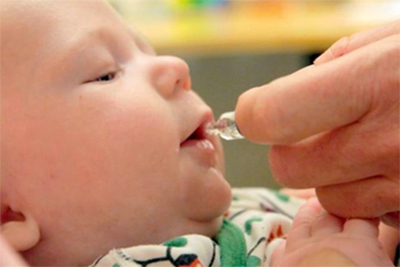
2. Possible Link Between Rotavirus Vaccine and Decline in Type 1 Diabetes |

![]() A drop in the number of young children diagnosed with type 1 diabetes (T1D) could be associated with the introduction of routine rotavirus vaccination of Australian infants, according to a new study by Melbourne researchers, published in JAMA Pediatrics.
A drop in the number of young children diagnosed with type 1 diabetes (T1D) could be associated with the introduction of routine rotavirus vaccination of Australian infants, according to a new study by Melbourne researchers, published in JAMA Pediatrics.
![]() The researchers investigated the number of Australian children diagnosed with T1D from 2000 to 2015 and found that T1D diagnoses in children aged 0-4 years declined from 2007, for the first time -- the year that rotavirus vaccine was introduced as a routine infant vaccination, to protect them against a severe, potentially life-threatening form of diarrhoea. This discovery builds on earlier research suggesting natural rotavirus infection may be a risk factor for T1D.
The researchers investigated the number of Australian children diagnosed with T1D from 2000 to 2015 and found that T1D diagnoses in children aged 0-4 years declined from 2007, for the first time -- the year that rotavirus vaccine was introduced as a routine infant vaccination, to protect them against a severe, potentially life-threatening form of diarrhoea. This discovery builds on earlier research suggesting natural rotavirus infection may be a risk factor for T1D.
![]() "The significant decrease in type 1 diabetes that we detected in young children after 2007 was not seen in older children aged 5-14. This suggests the young children could have been exposed to a protective factor that didn't impact older children," Dr. Perrett said.
"The significant decrease in type 1 diabetes that we detected in young children after 2007 was not seen in older children aged 5-14. This suggests the young children could have been exposed to a protective factor that didn't impact older children," Dr. Perrett said.
![]() Professor Len Harrison from the Walter and Eliza Hall Institute, who is the study senior author, said the discovery followed on from earlier research implicating rotavirus infection in the development of T1D, suggesting rotavirus infection of pancreatic cells can trigger an immune attack against the insulin-producing cells -- similar to what occurs in T1D.
"At this stage we don't yet know whether the reduction in type 1 diabetes is a permanent effect or transient, and it may only be relevant to Australian children," Professor Harrison said.
Professor Len Harrison from the Walter and Eliza Hall Institute, who is the study senior author, said the discovery followed on from earlier research implicating rotavirus infection in the development of T1D, suggesting rotavirus infection of pancreatic cells can trigger an immune attack against the insulin-producing cells -- similar to what occurs in T1D.
"At this stage we don't yet know whether the reduction in type 1 diabetes is a permanent effect or transient, and it may only be relevant to Australian children," Professor Harrison said.
For enquiries info@jothydev.net.
Please visit: jothydev.net | research.jothydev.com | diabscreenkerala.net | jothydev.com/newsletter
